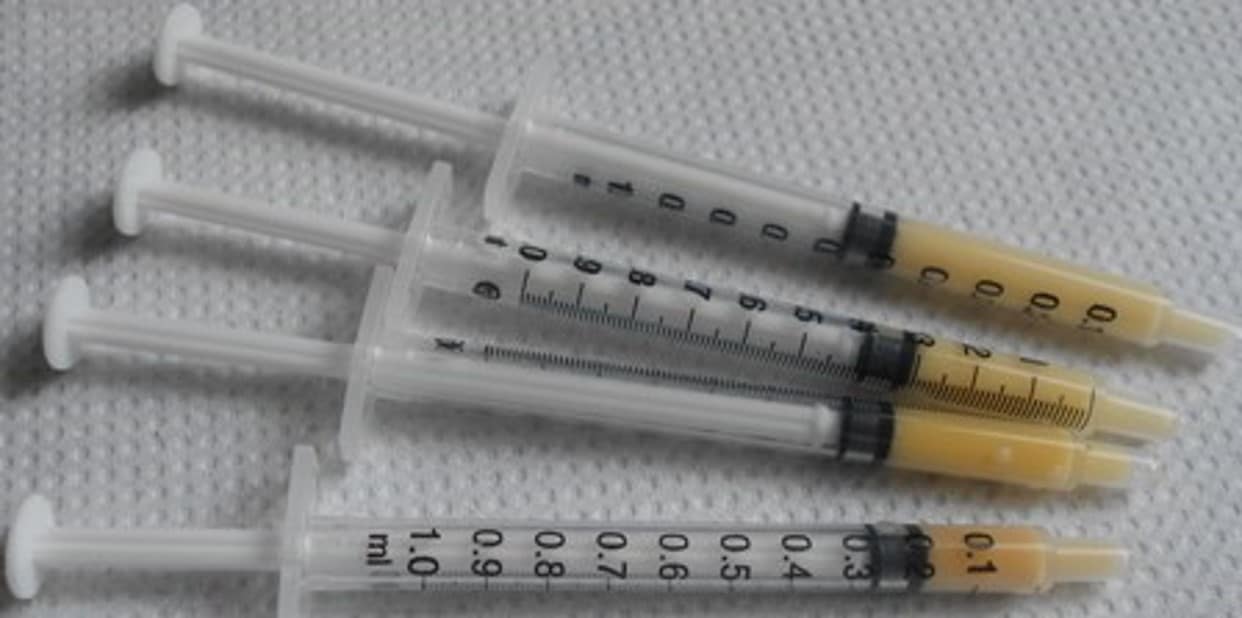Colostrum
Colostrum is easily digested and helps keep your baby’s blood sugars stable. Your breasts start to produce colostrum as early as 16 weeks into pregnancy. Colostrum is usually golden yellow in colour, thick and a concentrated food, so your baby will only need a small amount to begin with.
First milk
Colostrum is packed with nutrients and antibodies that nourish your baby and protect them from illness. Breastfeeding as soon as your baby is ready after birth gets your feeding journey off to the best start.
Colostrum contains molecules that support your baby’s developing immune response. It also helps your baby to poo frequently and get rid of all the meconium, the thick black poo, in your baby’s gut that has built up during their time in the womb.


